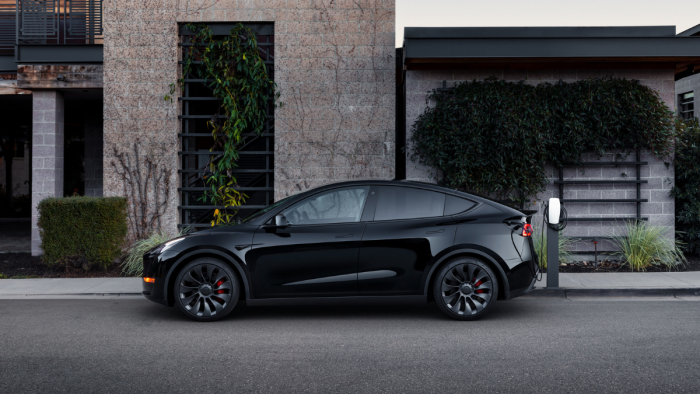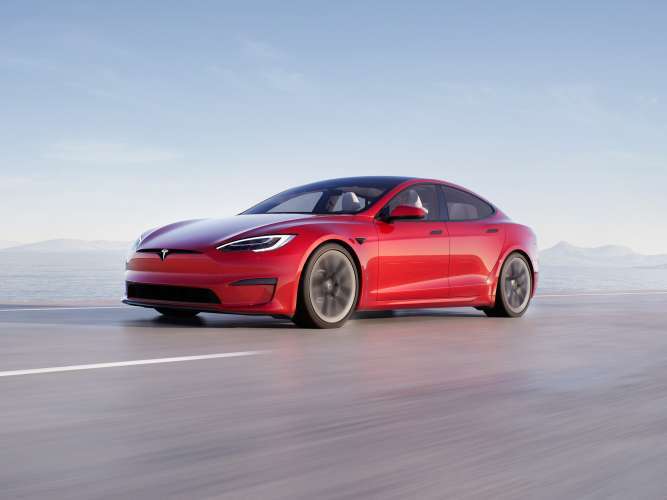According to data from CarMax, the search volume for the word “electric car” in the US market basically doubled from February 2022 to February 2023, when the retailer compiled data for its latest report on this type of vehicle. CarMax analysts were able to see a significant increase in searches for the first time between February and March of last year, not surprisingly at a time when gasoline prices soared as the war in Ukraine escalated.
One of the most interesting things is the data collected from dealers that show the current evolution of the market, and that in turn allows to see the current trends. According to reports, in February 2023 the five most popular electric vehicles were the Tesla Model 3, the Tesla Model Y, the Nissan Leaf, the Ford Mustang Mach-E and the Chevrolet Bolt.

It is striking how in the midst of a price drop war, Tesla models have continued to be leaders in terms of demand. But the most curious thing is that the average purchase price of these used units has been $37,000 for the Model 3, compared to $47,800 for the Model Y. It is curious because if we take a look at the Tesla configurator in the United States, we see that the new Model 3 starts at $39,990 - and this before government aid, that amounts to $7,500 -. In the case of the SUV, the Model Y starts at $46,990 for its Standard version; again, before incentives.
This means that the current stock of used units has a price very similar to - and even higher - than brand new units: a clearly unsustainable factor that will push the prices of used models down again if resellers do not want to run the risk of perpetuating the presence of these cars in their stores. This is a dynamic that will have strong consequences for the rivals, who will have to make adjustments. For example, the Ford Mustang Mach-e (used) has an average sale price of $48,015; that's $1,000 less than the new Model Y Long Range (before incentives).

Meanwhile, an affordable Nissan LEAF has an average price of $23,963 (that is, including the models of the first generation); a proposal that faces the competing starting price - at $ 32,490 - for a customer who opts for a Tesla Model 3, (including subsidies, in this case). Another striking fact is the percentage of cars that reach the used market: according to CarMax, Toyota vehicles were placed at a 12%, followed by BMW and Ford with 8%, Honda with 7% and Chevrolet with 7%. According to experts these are signs of weakness when it comes to making the leap to the new technologies for large, legacy auto groups.
No less interesting is the data that tells us which are the models that customers have actually changed when choosing their new purchases: for instance, customers of the best-selling used car - the Tesla Model 3 - have largely outpaced the Honda Civic and Toyota Tacoma pickup truck. The case of the Toyota Tacoma is somewhat surprising because it is a diametrically different proposal.
As for the customers who have bought a Tesla Model Y or a Model S, curiously they were customers who came from another Tesla, the Model 3; again, this is something that denotes a high brand loyalty when it comes to replacing vehicles.

The recent price drops by Tesla have undoubtedly impacted the used electric car market, intensifying competition and highlighting the need for adequate price adjustments for second-hand models. This development may force other car manufacturers and dealers to rethink their strategies and offer better deals for consumers, such as further price reductions, improved trade-in options, and additional incentives to boost sales.
While there could be short-term challenges in adjusting pricing and inventory, it could ultimately lead to longer-term benefits for both EV industry growth and customer satisfaction. As the affordability of EVs continues to improve, it's more likely that there will be a greater uptake of this type of vehicle, contributing to the global push toward sustainable mobility and cleaner technology.
Source: carmax
All images courtesy of Tesla Inc.
Nico Caballero is the VP of Finance of Cogency Power, specializing in solar energy. He also holds a Diploma in Electric Cars from Delft University of Technology in the Netherlands, and enjoys doing research about Tesla and EV batteries. He can be reached at @NicoTorqueNews on Twitter. Nico covers Tesla and electric vehicle latest happenings at Torque News.





